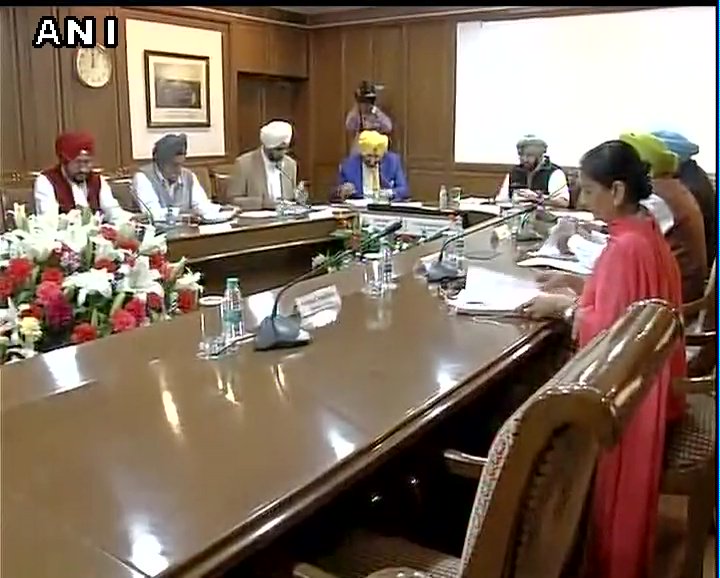Russia and India will boost long-term investment in the hi-tech, civil aviation, and defense sectors with the goal of increasing bilateral trade to an ambitious $30 billion annually by 2025, Russia’s trade and industry minister told media..
“We are constantly searching for new ways to strengthen our trade ties to reach the target of $30 billion in annual turnover by 2025, the figure that was agreed on by our leaders earlier,” Russian Trade and Industry Minister Denis Manturov told RT during his visit to India.
Education, science, and a mutual transfer of technologies are key to building trust between Moscow and New Delhi, in addition to improving their political relationship, he added.
“There are areas where we’ve been working with each other for decades, including arms trade, the energy sector, and the chemical and metallurgical industries,” Manturov said, mentioning a Rosneft deal to purchase a 49-percent stake in Essar Oil, one of the largest energy corporations in India.
The massive deal also included the purchase of the Essar-owned Vadinar refinery, which is capable of producing 20 million tons of petroleum products a year, as well as chain of 2,700 gas stations in the world’s second most populous country.
Both Russia and India are currently keen to diversify mutual trade, Manturov continued, citing India’s transfer of biotechnologies to Russia’s pharmaceutical industry as an example.
“We also expect that the development of [Russian] civil aviation industry would involve contribution of Indian manufacturers of aircraft components,” the minister said, adding that Moscow welcomes India’s investment in Russian Helicopters, one of the largest defense contractors in the world, as measured by annual revenues.
To help India modernize its military, both countries will look at options for establishing joint ventures that would produce critical parts of Russian-made weapons systems used by India’s armed forces, Manturov said.
Russia and India have had close political and military ties since the days of Soviet-Indian partnership, and India is now a booming market for Russia’s most successful industries. Rosatom, Russia’s government-owned nuclear power corporation, has recently inaugurated its second reactor at the Kudankulam power plant in southern India. Two other reactors are currently being built at the same site.
Russia also sees its already substantial arms trade with India growing. Over the past years, Moscow has delivered numerous state-of-the-art warships, combat aircraft, and land-based weapons systems to the country, despite fierce competition from Israel, France, and the US, which are all formidable arms purveyors.
New Delhi has sent an official request to Moscow to begin joint production of civilian aircraft for India, said Russian Minister of Trade and Industry Denis Manturov. Russia is ready to begin the project, added the minister.“We can offer Russian experience in creating this aircraft, and could consider the possibility of participation both in this project as a whole and in its individual stages from the design stage to after-sales service,” Manturov told media.
He also said there are plans for a joint venture to produce and supply Ka-226T utility helicopters. An agreement to build up to 200 helicopters is expected to be signed later this month. It includes servicing, repair and technical assistance.
The Ka-226T is a new version of the light multi-purpose Ka-226 helicopter, and has a take-off weight of almost four tons and a maximum speed of 250 kilometers per hour. It is capable of carrying up to 1100 kg payload in the cabin or on an external sling.
Russian Helicopters Holding is participating in a tender to supply two civil Mi-172 helicopters, in addition to those that are already operating in India, according to Manturov.
India has been a traditional buyer of Russian arms since the 1950s. Over the last five years, about 70 percent of the country’s military purchases came from Russia.
New Delhi is in talks with Moscow to acquire a number of Russian-made Ilyushin transport aircraft for its air force. The mid-air refueling aircraft would enhance the operational capabilities of the Su-30 fighter jets specially developed for India by Russia’s Sukhoi Design Bureau. The Indian Air Force (IAF) is already equipped with Russian-built IL-78 mid-air refuelers.
India has more than 300 Russian Mi-8 and Mi-17 helicopters in its fleet.
The IAF has plans to purchase 48 additional Mi-17V-5 helicopters for $1.1 billion. Eighty Mi-17V-5s have been delivered to India in 2011-2013, after a contract was signed with Russia’s state weapons exporter Rosoboronexport.
In December India approved the purchase of five S-400 air defense systems from Russia which is part of the biggest arms deal between the two countries in a decade.
































